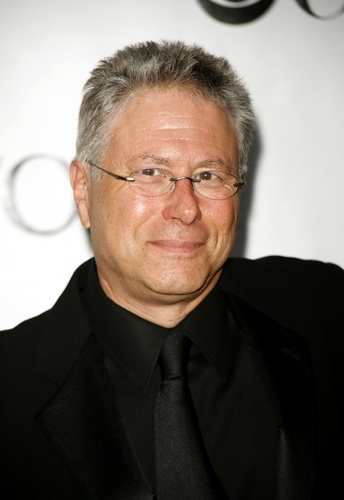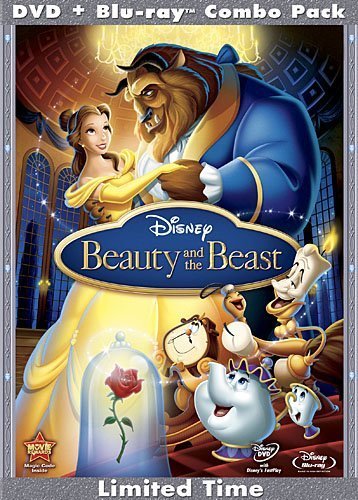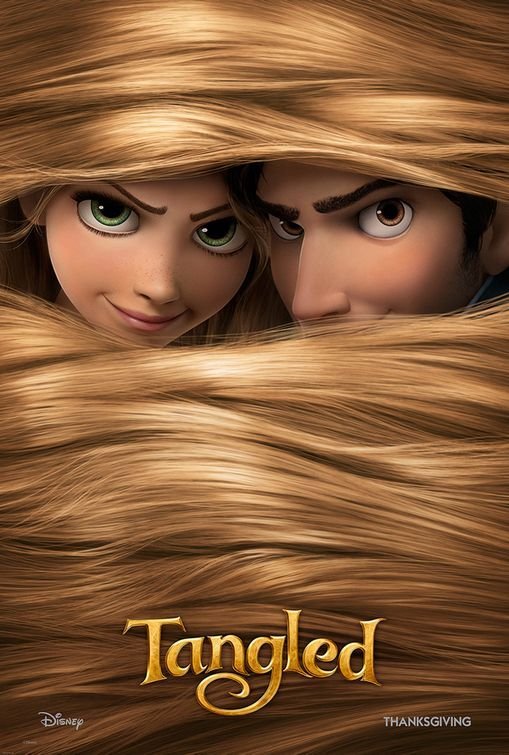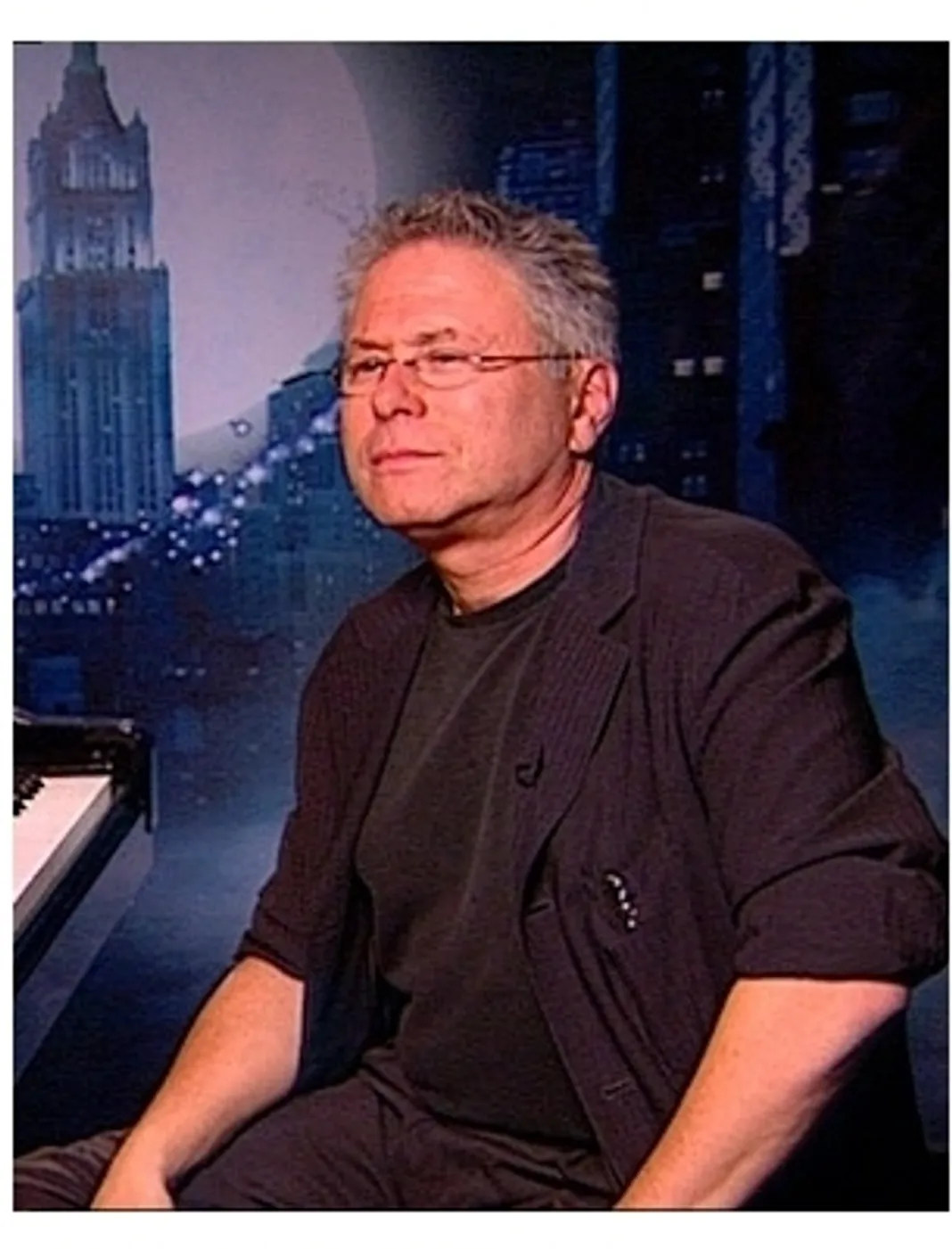 If the movie business had a Hall of Fame, one the major criteria for nomination and induction would be the number of awards that a candidate had received. By those guidelines, John Ford, Jack Nicholson and Ingrid Bergman would be royalty, but with a whopping 8 Academy Awards, Alan Menken would be king.
If the movie business had a Hall of Fame, one the major criteria for nomination and induction would be the number of awards that a candidate had received. By those guidelines, John Ford, Jack Nicholson and Ingrid Bergman would be royalty, but with a whopping 8 Academy Awards, Alan Menken would be king.
If you are unfamiliar with the name, its because you’ve never seen him on the big screen, but have no doubt heard his highly influential music throughout the years. As Walt Disney’s Pictures treasured composer, he’s written some of the most iconic tunes in Mouse House history, including “Under The Sea” from The Little Mermaid, “Be Our Guest” from Beauty and the Beast and “A Whole New World” from Aladdin. To celebrate the release of Beauty and the Beast on Blu-ray for the very first time, we talked with Mr. Menken about his favorite musicals, his songwriting process and the cultural impact that his music has had on the world.
Read on for our exclusive interview with Alan Menken and make sure you grab Beauty and the Beast in it’s Blu-ray/DVD combo today!
Alan Menken: Hi Danny.
Daniel Hubschman: Hey Alan, how are you today?
AM: I’m very good, how are you?
DH: Good, thanks for taking the time to talk to me.
A: My pleasure.
D: So, I wanted to ask you, was it possible to have the kind of knowledge – looking back in hindsight – that films like The Little Mermaid and Beauty and the Beast – and more specifically, the music within those films – would have the kind of cultural impact that they did?
 A: I think that at the gut level, I thought we were doing something special, I did feel that. I often think of The Little Mermaid as my follow up to Little Shop of Horrors. And I knew we had done something special with Little Shop of Horrors, and people really responded to that, and when we worked on The Little Mermaid I had a similar feeling. I guess the answer would be yeah, frankly we were up to something special – I mean how culturally groundbreaking it was or is, that’s an objective point, I don’t know, I’d like to think they’re important but I’ll leave that to others to evaluate and I’m certainly, I gotta say, not about false modesty. I’m pretty humbled when people say that about the work. That means a great deal.
A: I think that at the gut level, I thought we were doing something special, I did feel that. I often think of The Little Mermaid as my follow up to Little Shop of Horrors. And I knew we had done something special with Little Shop of Horrors, and people really responded to that, and when we worked on The Little Mermaid I had a similar feeling. I guess the answer would be yeah, frankly we were up to something special – I mean how culturally groundbreaking it was or is, that’s an objective point, I don’t know, I’d like to think they’re important but I’ll leave that to others to evaluate and I’m certainly, I gotta say, not about false modesty. I’m pretty humbled when people say that about the work. That means a great deal.
D: Well, they are absolutely iconic pieces of music. My fiance, for one, when I told her I’d be talking to the guy who wrote the songs for those films, she really kind of flipped out because they do have that kind of effect on people – they’re known around the globe – and the music, you cannot separate the music and the films, and that’s a testament to their quality.
A: Well, thanks.
D: So, another thing i was interested in is, you’ve obviously composed for both animation and live action, and i was wondering what, if any, are the differences between doing the two?
A: Animation is generally a medium that’s more familiar and comfortable with musicals than live action. With animation there’s a consistency in movies with the teams I work with, the people I work with, and with live action we’re kind of reinventing the wheel with each one, because there isn’t yet really any kind of existing original live action film musical industry in place right now, and so I’m hoping that the live action film will become as frequent a form as the original animated musical. And I kind of separate the adaptation of the stage musical and the original film musical where all the decisions are up for grabs, because in the development process, that’s where all the decisions get made.
D: It’s pretty much undeniable that there’s been a renaissance in the movie musical in the last few years – we’re seeing a lot more produced, and a lot more of a positive audience response to them – do you care to comment on any of those, you know – the Hairspray’s of the world?
A: Well, they’re all adaptations of Broadway musicals, and I think that kind of audience – Little Shop was another adaptation – I think it’s fabulous, and I thought that Hairspray move was just wonderful, I mean really wonderful and I’ve seen it a number of times. I really enjoyed it, I really enjoyed Marc Shaiman and Scott Wittman’s score, and I just enjoyed Dreamgirls and I enjoyed the movie Nine…
D: I did too. I thought Nine was brilliant in certain ways. That’s one where I felt the other technical components of the film really heightened it. I loved the cinematography; it was shot so beautifully. I liked the set design in particular as well as the musical numbers, I thought it was wonderful and I was saddened that the reaction to it was what it was.
A: Yeah, that happens, and it hit a buzzsaw of it not being either what people wanted it to be, or maybe it was Rob Marshall, I don’t know. So you know, I think it’s great and I’m always weary of these renaissances in the film business because all it takes is one disaster and its over. And right now I’ve got Tangled that’s coming out, and I’m rooting heavily that that does well so we can do more of those.
 D: Now can you tell me anything about Tangled or the music you’ve written for it, or any updates on The Snow Queen also, anything you’ve been working on?
D: Now can you tell me anything about Tangled or the music you’ve written for it, or any updates on The Snow Queen also, anything you’ve been working on?
A: Well, you know Snow Queen is shelved, it was shelved, and the issue is that the jury is out as to how many animated musicals they want to do right now. They want to make money so you know if Tangled does well there will be more of them. We had a wonderful screening last night – I feel really good about the movie, and I hope people flock to see it, obviously. I think it’s really good, it’s unique and yet it’s very much in my vocabulary and in the vocabulary of classic Disney – but updated in a more contemporary way, somewhat akin to Enchanted. I’m developing a couple of live action film musical ideas, which I don’t want to talk about in any detail, but that is something I want to pursue as well. I love working in film, I do, and there are aspects of working on film which frankly I prefer over working on stage musicals.
D: So let me ask you: what are the other movie musicals or stage musicals from the past which you feel had a profound influence on your work, would you say?
A: My favorite is The Wizard of Oz. I love the Astaire-Rogers movies, Irving Berlin, or George Gershwin, or Jerome Kern. I love when theater writers comes out and work in film – there are just wonderful examples of that, George Gershwin… Oh my god, so many. There are so many film musicals and you know, I’m not really necessarily a film musical fan per se – that happens to be something that I do, that I enjoy. I loved the update of the film musical of Hair. I was actually very happy with the Little Shop musical. I’m sure most of them are probably escaping my mind – Fiddler (On The Roof) was a good one, My Fair Lady was a good one, West Side Story I loved. And boy, did I love Natalie Wood. I was legitimately in love with Natalie Wood.
D: Who wasn’t?
A: Well, I guess it depends on how old you were.
D: I’m a little young for her, but I still can look back on West Side Story or anything with Natalie Wood and still fall in love. She’s timeless.
A: It’s true, she’s timeless.
D: When writing songs, do you go on instinct, based on the things you see, or do you use director’s notes, or do you revert to your classical training to write? How does that process work?
A: Well, what we do is sit down with the directors and, for of all, discuss in detail where the song might go: what the sound of the song should be, what musical vocabulary is really going to inform this song, what type of song would it be, discuss examples of other songs that are like it, really go into where does the song start, where does the song end, what does the song say, do we want it to be funny, do we want it to be touching, what are we going after exactly, and then, I go with my collaborators and sit in a room and usually listen to the music first, but no matter what we know what our assignment is – we know the kind of song we want to do, and we start the ball rolling. And when I feel we’ve got something far along, we send the demo along to producers or directors or whatever, and then we start the back-and-forth and more often than not, we get back a really great response that says “we love it” and then that kind of anoints it. And then you move onto the next level of demo, and then you’ll fret about if for the next couple of months, and then you say “hey, we want to go and record this” and you go and record it.
D: Gotcha. Sounds like an interesting process, I’d love to see it. I wish I had more time to talk to you.
A: Same here, Danny.
D: Thanks for the time a lot, Allen, I really appreciate it.
A: My pleasure.


